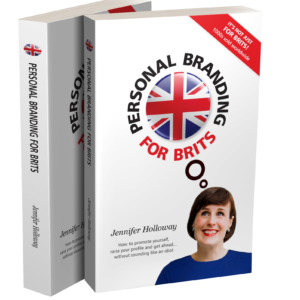

3 Ways To Sell Your Brand In Interviews – Part 3
So far in this mini-series of blog posts, I’ve covered how to stand out from the crowd before you’ve met the interviewer, plus how to provide quality as well as quantity with your answers.
My final pearls of wisdom concern competency-based questions – a staple of interviews the world over. In case you haven’t come across the term before, a competency-based question is one that asks for a clear illustration of how you work, usually beginning with the phrase, “Give me an example of a time when you [whatever competency they want illustrated]…”
One well-known way to structure your answer is to use the STAR format:
S – Situation: Give a brief description to set the scene
T – Task: Set out briefly what you had to achieve
A – Action: Talk through what you did in practical terms
R – Result: Finish with stating the final outcome
That’s useful, but it’s not the whole story when it comes to your personal brand.
Don’t forget the ‘who’ with the ‘what’
Remember what I’ve said time and time again about your brand comprising two elements: your ‘what’ (what you have to offer) and your ‘who’ (who is bringing that to the table)?
Well, nearly everyone that answers a competency-based question will talk solely about their ‘what’. It’s not surprising, especially when the Action part of the STAR format is focused entirely on doing that. But the best personal branders also slip in a bit of ‘who’ at the same time.
Lights, camera, action!
While you’re preparing your interview answers using the STAR format, I want you to linger a little longer on the Action part. As you list the things you did to achieve the Result, take a minute to ask yourself:
“Which aspect of my personal brand helped me to do that?”
(And if you’ve already spent time working out what your personal brand is, that should be relatively easy to answer.)
Was it your Value of loyalty that was repaid when your team stepped up to the mark for you?
Was it your Driver of trying new things that led you to discover an innovative solution?
Was it your Reputation as someone who champions diversity that led to you being chosen to lead a project?
Was it your Behaviour of staying ultra calm in a crisis that enabled you to take control of a situation?
Was it your Skill/Strength of being naturally persuasive that got difficult stakeholders into line?
When you know how your ‘what’ and ‘who’ tie together, it’s easy to incorporate both into your interview answers.
Here’s what I’m talking about…
Interviewer: Give me an example of a time when you had to make a difficult decision.
Interviewee: [Situation] My boss was seconded to a new project for three months, so I had to immediately step into her role. Shortly after, one of my boss’s key clients called up, asking for a discount that went way over what we’d usually offer. He said he was one of our top customers, so he was adamant he should get what he was asking for; he was being quite aggressive about it.
[Task] My difficulty was how to keep the customer happy – and not cause a problem between him and my boss – but still stick to the discount terms we usually allowed.
[Action] I’m pretty much unflappable [Behaviour] so the first thing I did was make sure I kept my responses calm and balanced, which helped to calm the customer down. I said I wanted to be fair to him, but it mattered to me to be fair to the company too [Value + Driver].
I find that avoiding a snap decision and really thinking through the finer detail of various options leads to a much better solution [Skill/Strength] – so I asked the customer to give me some time and I’d call him back within the hour.
I then used my network of contacts in the business – people I’ve spent time building trust with [Skill/Strength + Value] – to dig into the background of the discount terms, to see just if I could find some flexibility but still stay on the right side of the rules [Value]. It turned out I could increase our usual discount and, although it wasn’t as big as he’d wanted, it was a good middle ground to go back with.
Before I went back to him, I called my boss to set out what I felt was the best way to handle this, because I needed her to feel she could trust me to keep the customer on side [Value again]. I then called the customer back, just as I’d promised to do [Value + Behaviour] and laid it all out.
[Result] The guy conceded he’d had a lot of discounts in the past and appreciated we had to be fair to our other customers too. So he agreed to the new terms and continued to be a loyal customer for years to come.
It doesn’t matter how good your CV is or how technically skilled you are, it’s only when an interviewer has some insight into what makes you tick that they can really decide if they’re buying what you’re selling. And now you know exactly how to do that.







A very good illustration of how to deal with a competency based question, since it is such a valuable and frequently used interview technique. I have done many of these over the years, and another important aspect is to make sure that you stick to the truth and avoid the temptation to “big it up”. I would rather hear a true but perhaps mundane story than one which is found to have been exaggerated, and it is easy for an experienced interviewer to get past an initial facade. That also speaks to my values too, since if I cannot trust someone to tell the truth then I can have no basis for a working relationship with them.
A good point Tony.